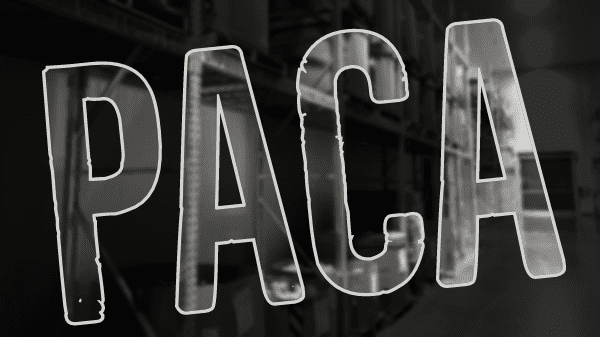Welcome to Blue Book!
Are you ready to join the thousands of companies who rely on Blue Book to drive smarter decisions? View our plans and get started today!
Still have questions? We’d love to show you what Blue Book can do for you. Drop us a line– we’ve been waiting for you.
The Problem: Receiver claiming a 25 percent commission on sale of distressed product.
The Key Point: Receivers are not necessarily entitled to any commission when they receive distressed product.
The Solution: If the carrier agrees to allow the receiver to handle the product on consignment, a 15 percent commission is customary, but a different percentage may be agreed to.
QUESTION
We are an intermodal carrier based in the United States. When dealing with trouble loads, we have come to expect customers to take a 15 percent commission, but now we are seeing 20 and 25 percent, which seems too high. What are our rights in this situation?
ANSWER
Your question suggests some confusion regarding your customer’s rights where there has been a breach of the contract of carriage. Following a breach (e.g., a failure to use due care to protect the product in the carrier’s possession per U.C.C. 7-309(a)) your customers are entitled to be made whole, but they are not entitled to a commission unless you agree to allow them to handle the product on consignment.
For example, if transit temperatures run too warm causing a commodity that should have been worth $12.00 a carton (per the USDA’s Market News) to be worth only $8.00 a carton, then your customer, after receiving the product, is made whole when it deducts $4.00 a carton from your freight bill, plus any incidental expenses (e.g., USDA or CFIA inspection fees), from your freight invoice.
If your customer were to unilaterally deduct a commission as well, it would actually make out better than it would have had there been no breach. Following a breach, the aggrieved party is entitled to be made whole, but is not entitled to a windfall.
But, you may ask, what if there is no Market News price reported for the commodity in question? In this case, per industry precedent, the delivered cost of the product is used as the fallback method of determining its market value. This effectively eliminates the receiver’s opportunity to make a profit, but attempts to argue for a markup, of say 15 percent, have been deemed too speculative and have therefore been disallowed. In theory, the delivered cost is treated as the market value, and when the receiver recovers the difference between its salvage proceeds and this market value, plus incidental expenses, it is deemed to be made whole.
If, however, your customer asks to handle the product for your account (perhaps suggesting it will reject the product if you do not agree) and you agree, then your customer as consignee is entitled to deduct a commission from the gross proceeds realized from its sale of the product, which increases the difference between the market value of the commodity in good condition and the salvage proceeds realized from the distressed product, thereby increasing the receiver’s damages.
Please note: this is different than in the context of a vendor-to-vendor transaction, when the seller agrees to allow the buyer to handle the product on consignment; per industry custom, the receiver simply returns its gross proceeds, less a commission, freight expense, and incidental expenses such as inspection and dumping fees.
The customary commission is 15 percent, but the parties can agree to a higher percentage. Unfortunately, some consignees have been known to improperly account for their proceeds, thereby artificially and illegally charging a greater commission. Much better than issuing an inaccurate accounting would be for receivers to simply negotiate a higher commission when they agree to handle the product for the carrier’s account.
Your questions? Yes, send them in. Legal answers? No, industry knowledgeable answers. If you have questions or would like further information, email tradingassist@bluebookservices.com.




